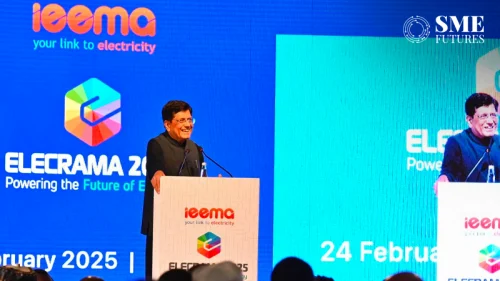Higher outgoes on welfare schemes to support the sagging consumption growth will be among the key focus areas in the Union budget to be presented next week, a domestic rating agency said on Tuesday. The union budget will look at pushing consumption through higher allocation for the rural economy, welfare schemes and agriculture, Care Ratings said.
It expects focus on manufacturing and capex to continue as government likely to retain its interim budget’s target of capex.
According to CareEdge Ratings, government is likely to retain capex target for FY25 at Rs 11.1 trillion. Overall public capex grew by 15.1% in FY24. A slowdown in state capex and contraction in CPSE capex moderated overall public capex growth in FY24. CPSE capex have contracted over the past few years. However, FY25 interim budget saw a 5.2% growth in allocation to CPSEs for capex. For CPSEs, capex has been led by petroleum and natural gas, power, and renewable energy.
On revenue front, the higher-than-expected transfer from the RBI could provide an additional upside of Rs 1.25 trillion to the non-tax revenue compared to budgeted amount. CareEdge Ratings expect gross tax revenue to grow by 11% in FY25, higher than budgeted growth of 10.6% led by strong growth in direct tax collections. It expect a total upside of Rs 1.4 trillion in overall revenue collection when compared to estimates of interim budget (~Rs 1.25 trillion in non-tax revenue plus ~Rs 150 billion from tax revenue). Consequently, CareEdge Ratings expect tax buoyancy at 1.04 marginally higher than budgeted buoyancy of 0.96 in FY25.
Additional revenue growth expected to help reduce the fiscal deficit target for FY25 to 5% of GDP (from interim budget’s target of 5.1% of GDP), even after accounting for higher revenue expenditure. CareEdge expects incremental revenue expenditure of Rs 750 billion compared to the Interim Budget estimate.
CareEdge Ratings expects higher projection of nominal GDP growth for FY25 at 10.7% (as against interim budget estimate of 10.5%). It says, general government debt has shot up to 83% of GDP in FY24, resulting in high interest burden. With sovereign rating agencies watching the debt trajectory, the focus on fiscal consolidation should continue.
It also believes Government borrowing is expected to fall, with net borrowing in the range of Rs 11.2-11.4 trillion ( Rs 11.8 trillion as per Interim Budget) and gross borrowing expected between Rs 13.6-13.8 trillion (Rs 14.1 trillion as per Interim Budget) in FY25. Lower supply of G-secs in FY25, combined with increased demand resulting from passive inflows following India’s inclusion in global bond indices, is expected to ease G-sec yields in the fiscal year. Anticipation of the RBI initiating policy rate cuts in H2 may further exert downward pressure on G-sec yields. By the end of FY25, 10-year G-Sec yields are projected to range between 6.5-6.6%.
It believes government’s divestment plans have missed their targets for five consecutive years. Hence, Government is likely to stick to the FY25 target of miscellaneous capital receipts (includes divestment) of Rs 500 billion. However, achieving this target hinges on government undertaking big-ticket divestments. Government has relied on OFS route for undertaking divestments in the recent years. Issues like procedural delays, litigations by labor unions/interest groups, and pricing issues continue to slow divestments.
According to Sachin Gupta, CRO & Executive Director, CareEdge Ratings said, “Job creation will be a priority in this Union Budget with higher allocation for MNREGA and PLI for labour intensive sectors. The allocation under major PLI schemes have grown significantly in FY25. Large Scale Electronics and IT Hardware, Automobiles and auto components and Pharma has dominated most of the allocation under the PLI Scheme in the interim budget. Government may look to increase allocation or include more labor-intensive sectors like textiles, leather and footwear and toys to aid job creation. We also expect welfare schemes to get higher allocation in this budget, while Capex will continue to remain in focus.”.
Rajani Sinha, Chief Economist, CareEdge Ratings said, “Over past couple of years, share of revenue expenditure in total expenditure has declined from pre-pandemic average of ~88%. We expect FY25 revenue expenditure to grow by 6.8%, higher than budgeted growth of 4.6% resulting in ~ Rs 750 billion higher allocation compared to interim budget’s estimate. Government is expected to do higher allocation towards agriculture, welfare schemes, job creation and rural housing. Some of the major schemes/ministries that can see higher allocation include MNREGA, PM Awas Yojana, PM Gram Sadak Yojana, PM Kisan Samman Nidhi and schemes related labour intensive MSME sectors”.
“We estimate total divestment potential of Rs 11.5 trillion (assuming Centre retains 51% stake). However, decision to divest will depend on market conditions and strategic nature of the firms. In case divestment lags going ahead due to headwinds, the government will continue with its focus on asset monetization. Plausible divestment includes Shipping Corp, Pawan Hans, NMDC Steel and CONCOR”, said Rajani Sinha.
According to Sanjay Agarwal, Senior Director – BFSI, CareEdge Ratings, “Union Budget will focus on Incentivize Inflows to improve deposit inflows into the banking sector. For housing, there is expectation of relaunching a scheme similar to PMAY CLSS for affordable housing. There will be greater impetus on MSME focused schemes to enable MSMEs access funds for capital expenditure / working capital. The Central Government could also look at diluting stakes in select public sector banks to meet listing norms”.











